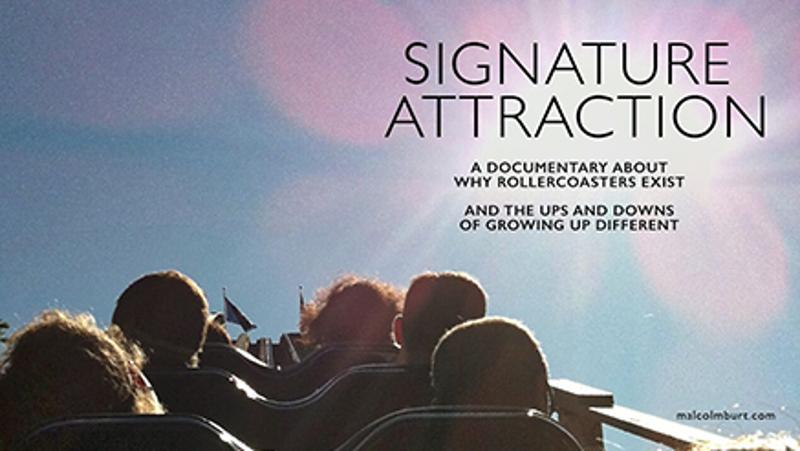
People have an emotional need for roller coasters and the feeling of controlled fear they provide, a thrill-seeking QUT researcher has found.
During a project which has had more twists and turns than most, QUT “rollercoaster academic” Malcolm Burt corkscrewed his way around the world to investigate why roller coasters exist and created the documentary Signature Attraction.
“We generally know what to expect from a roller coaster but I wanted to find out why we choose to ride them. Why do we pay to be scared?” Mr Burt said.
“It’s quite expensive to get into a theme park and then you can line up for several hours for a 60 second ride to nowhere. What does this say about us as a society?”
Mr Burt’s recently-completed Masters project, comprising a thesis and documentary, saw him travel for filming in the USA and Asia, experiencing numerous exhilarating thrill rides and talking to park managers, sociologists, psychologists and roller coaster enthusiasts to find out why we ride them.
“It very quickly became obvious that roller coasters exist because we have a strong psychological need for them, and of course they make a lot of money for theme park owners,” said Mr Burt.
“So the next question became: why do we have such a psychological need for them?
“The world has changed enormously since the Industrial Revolution but, from a biological perspective, we haven’t.
“We aren’t at immediate risk every day any more — we actually live in a fairly lazy, consumerist society, but we still need a way to stay in touch with our primal selves. Coasters and other thrill rides are one way of maintaining a ‘hands on’ form of release, an adrenaline rush without being in any danger.”
Mr Burt said roller coasters also “democratise thrill seeking” by offering a “genuine release” without having to pursue more expensive adrenaline-fuelled experiences.
“In the Western world we have very limited amounts of paid leisure – most us of don’t have the time, money or skills to get the genuine release from doing something extreme like climbing Mount Everest,” he said.
“But we can easily head to the theme park and scare ourselves senseless, as the biology of the thrill you get from a scary coaster and that of the peak experience when climbing a mountain is almost identical.”
The soaring popularity of roller coasters showed people were keen to re-connect with their “primal selves”, Mr Burt said.
The global appetite for roller coaster-based thrills shows no signs of diminishing with nearly 300 roller coasters built around the world between 2011 and 2013.
Combined, the world’s theme parks attract several hundred million visitors every year and parks in the US alone bring in roughly $12 billion a year in revenue.
Mr Burt coined the term “Amusement-Industrial Complex” to explain why we seek out theme parks and thrill rides when we feel our life needs a bit of spicing up.
“We are driven to consume these thrills, because that is what is promoted to us as a thrill in multiple forms in the media – if you want a thrill, you go to a theme park. And then of course you need to buy the shirt and photo to prove you were “brave” enough for the thrill, post it on social media and encourage the process of making these rides out to be daring thrills, when it fact they are incredibly safe,” he said.
“Through advertising and media awareness alone, other arguably comparable forms of thrill-seeking are drowned out.”
Mr Burt’s documentary, Signature Attraction is available at: https://youtu.be/vBrkeXusCOc
More information about Malcolm, and additional interviews and press information is available at malcolmburt.com
Mr Burt will commence a PhD this year which will result in an online video series, asking the question ‘What is the future of theme parks?’
QUT is part of a national collaborative group of five major Australian universities that form the ATN (Australian Technology Network of Universities).
Media contact:
Amanda Weaver, QUT Media, 07 3138 1841, amanda.weaver@qut.edu.au
After hours: Rose Trapnell, 0407 585 901, media@qut.edu.au


